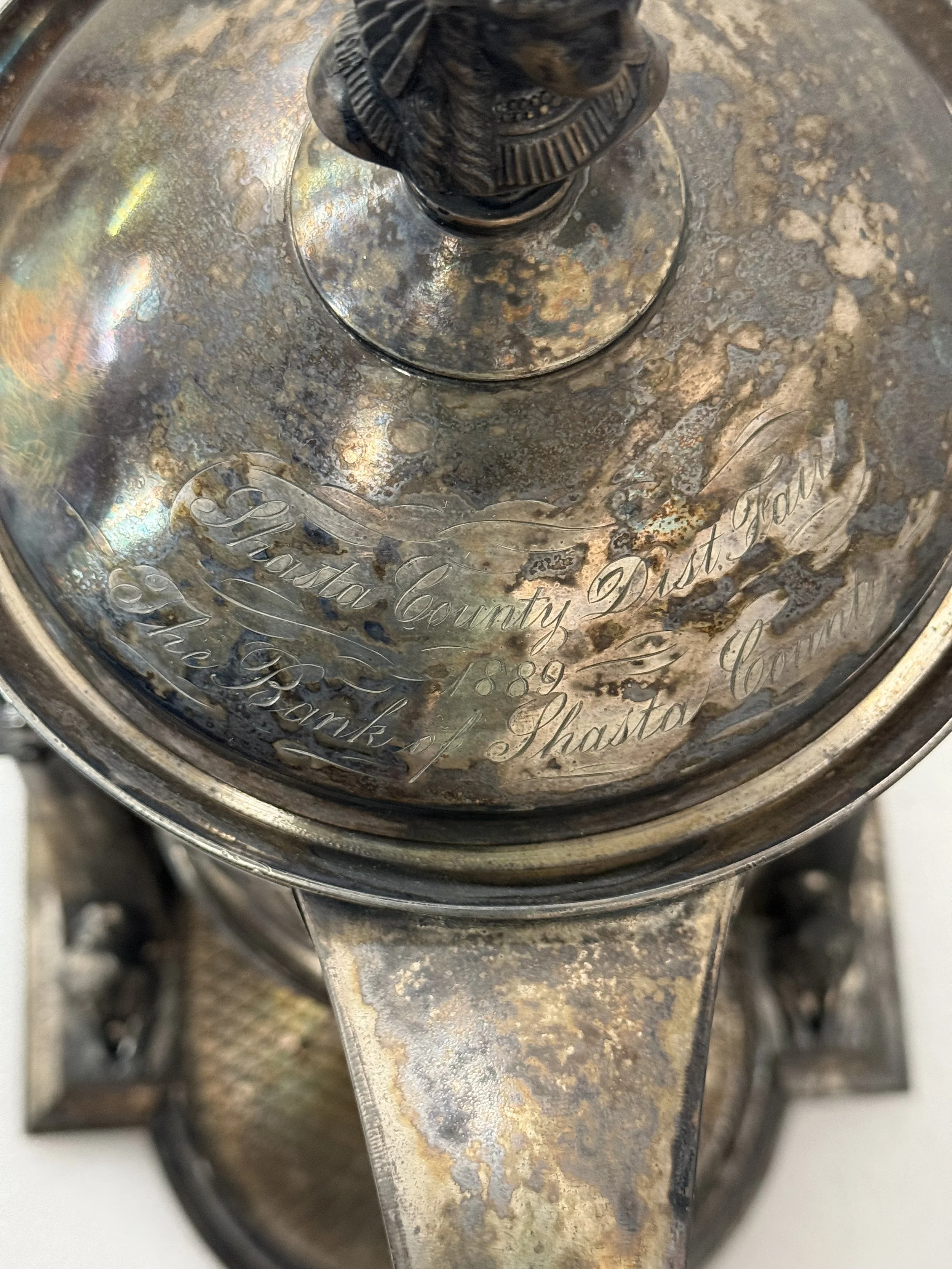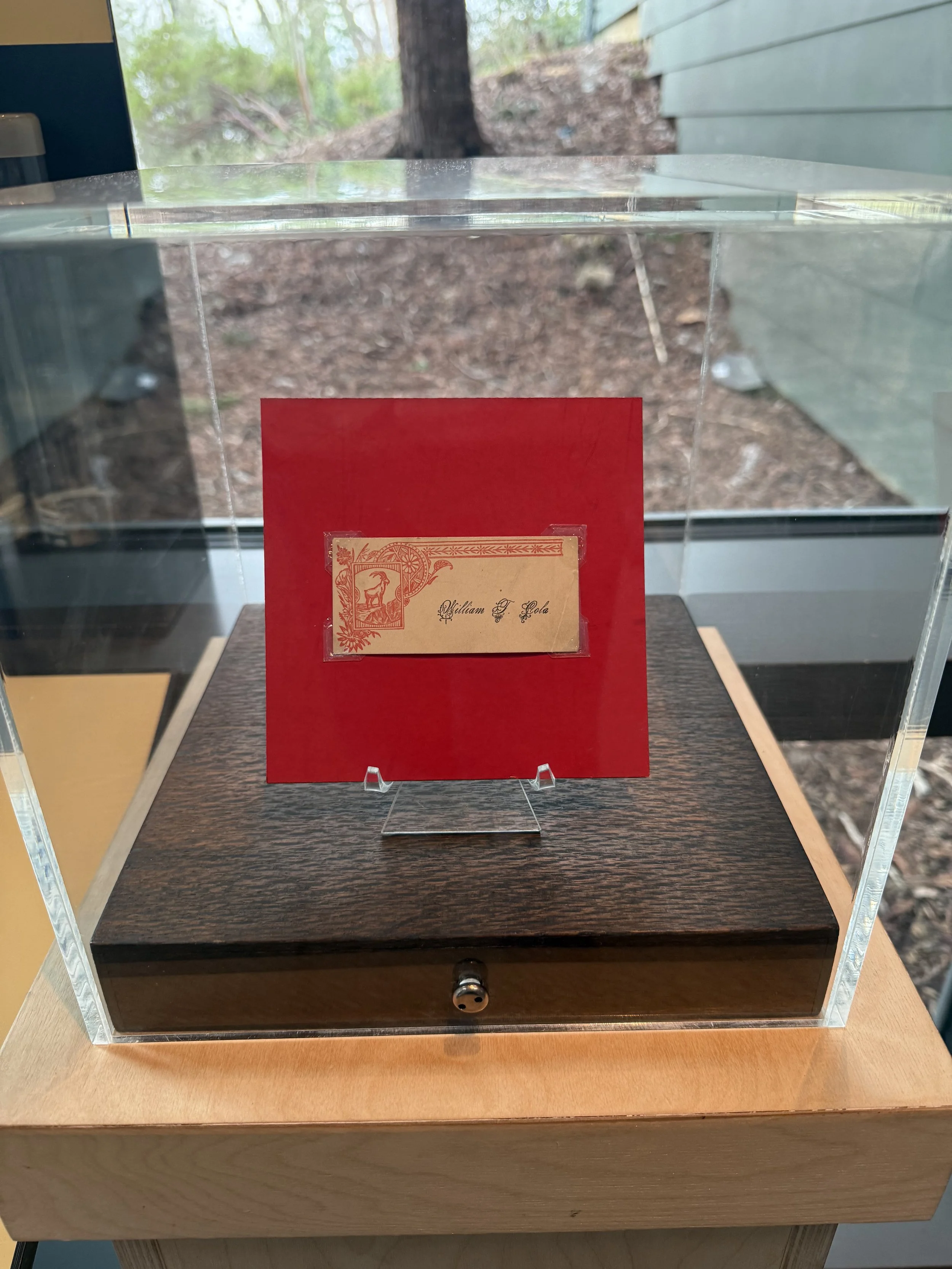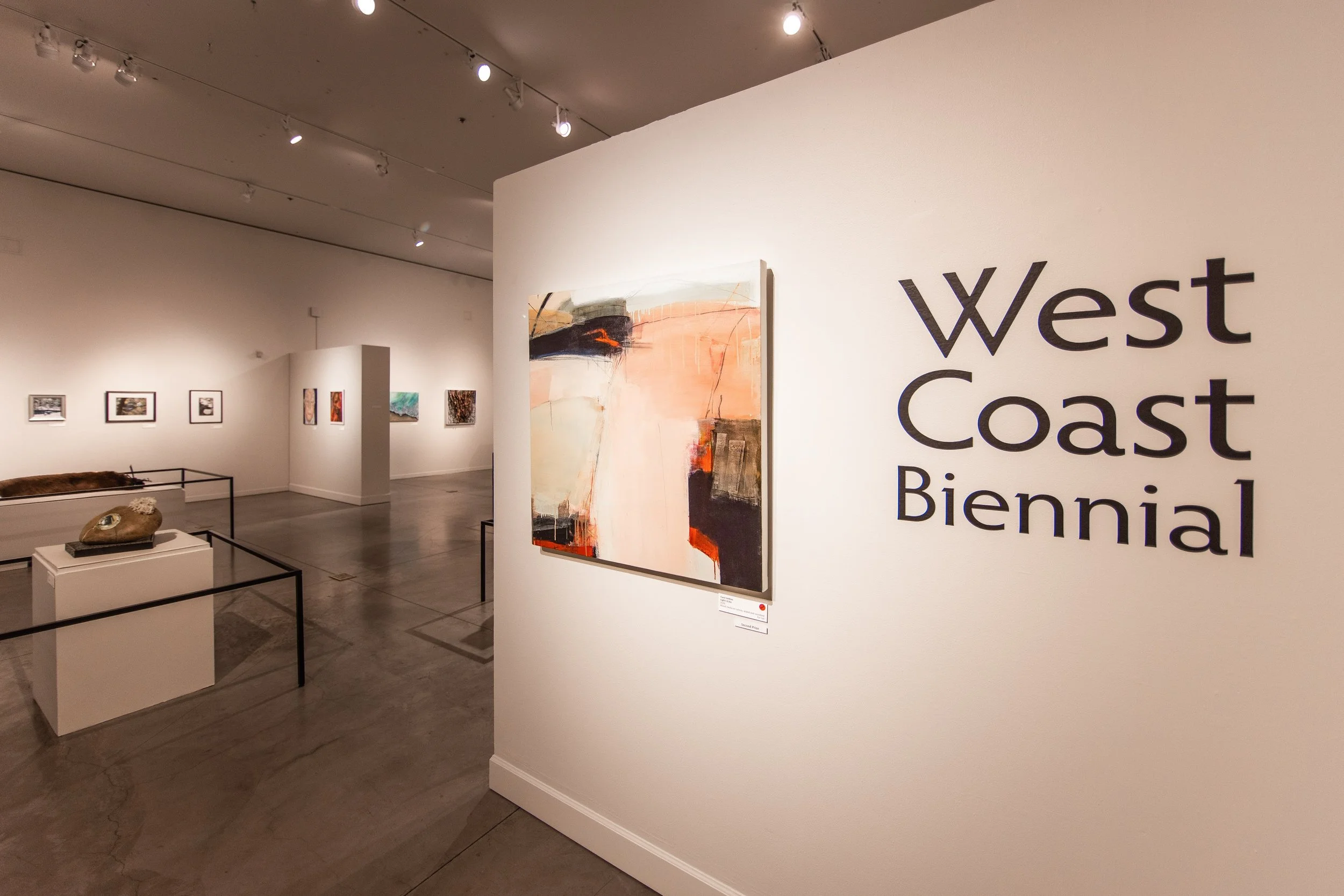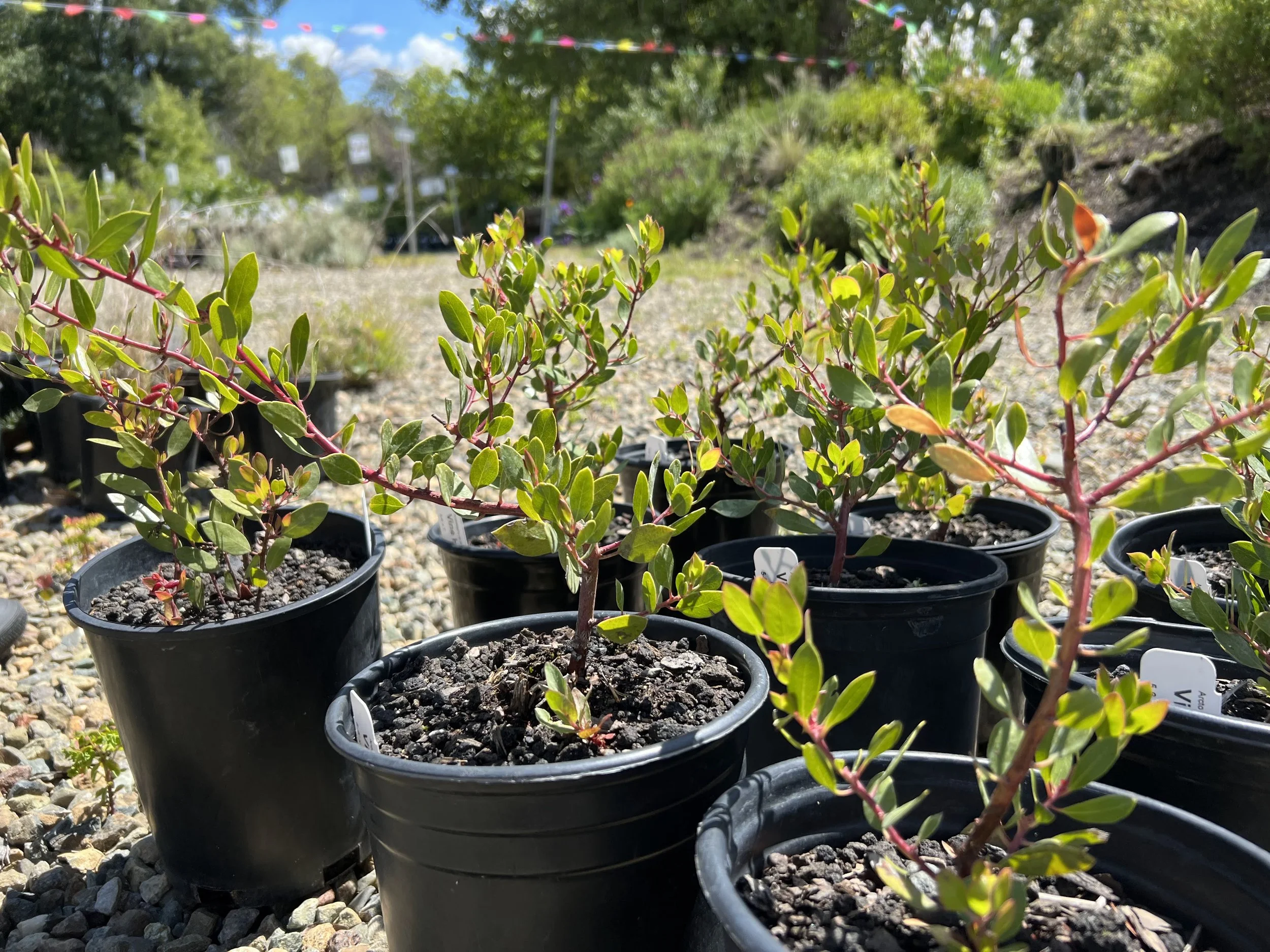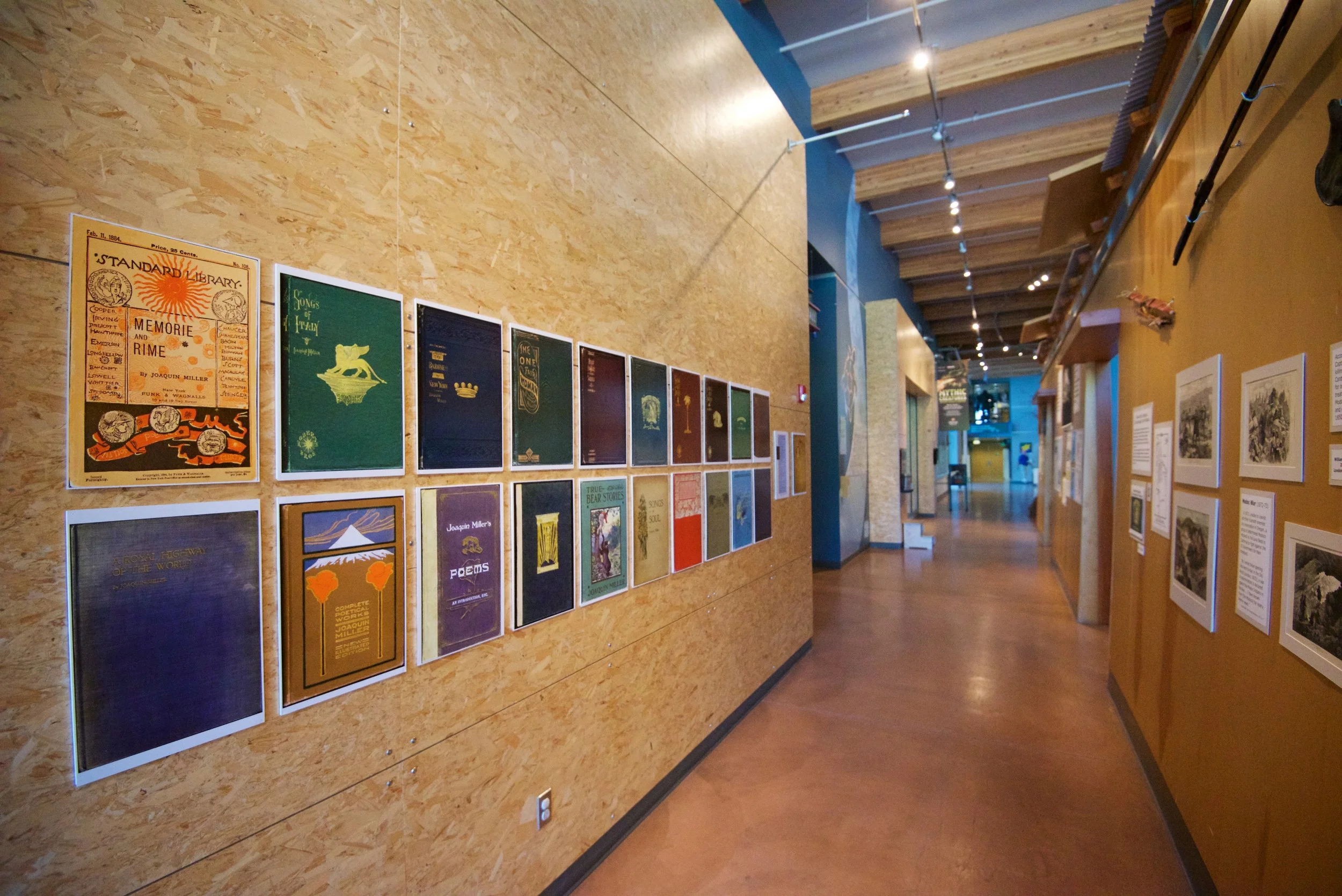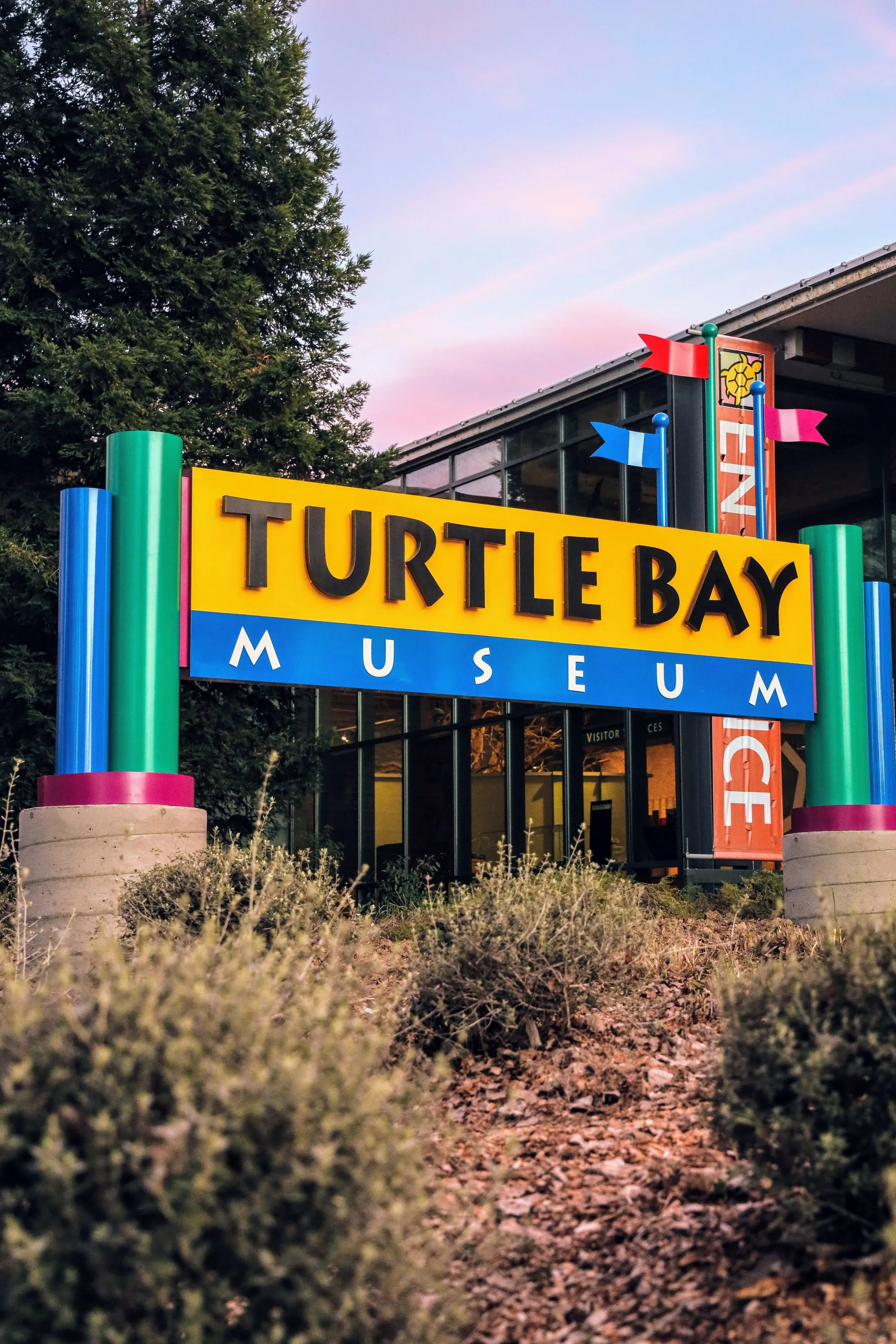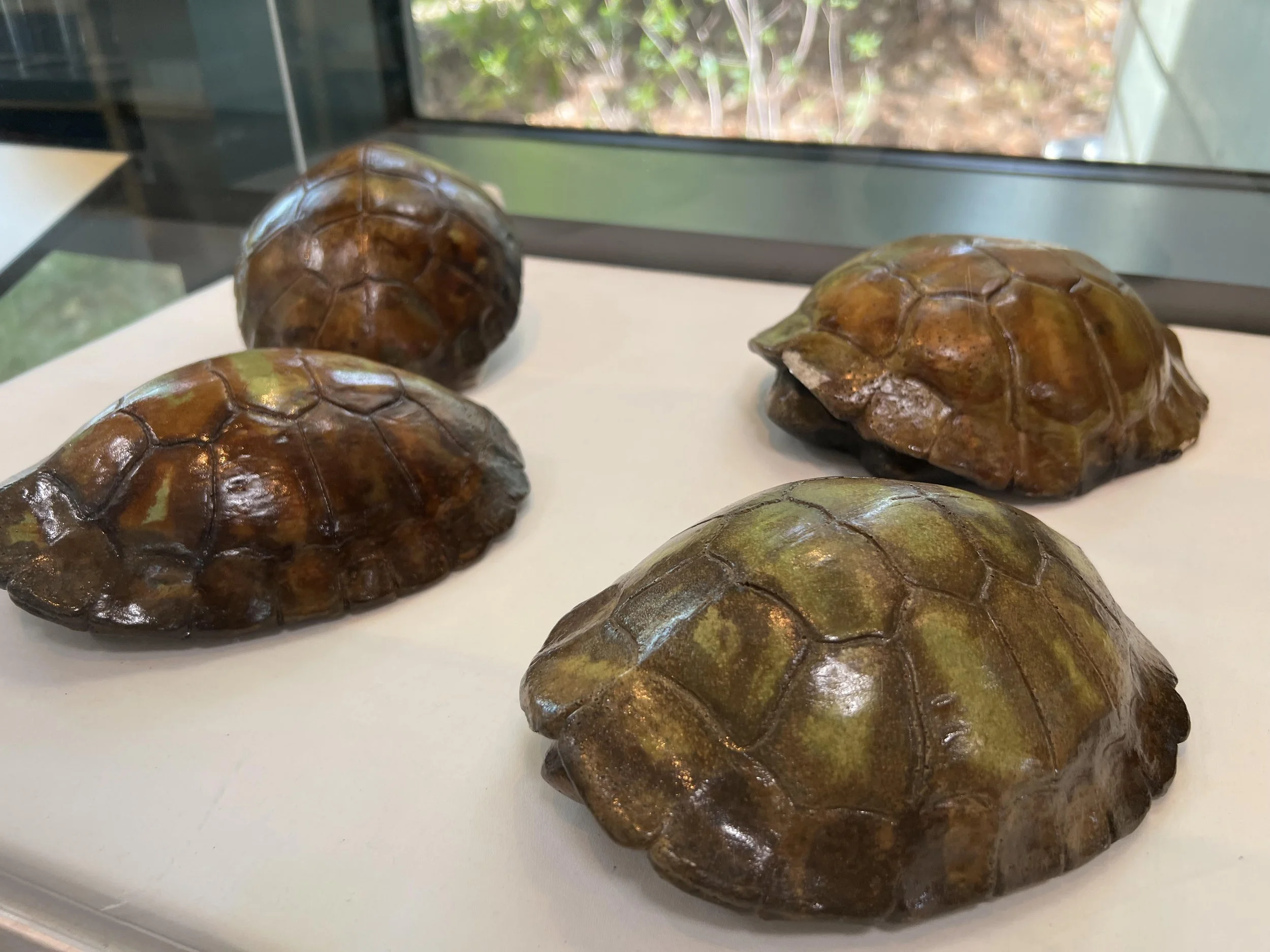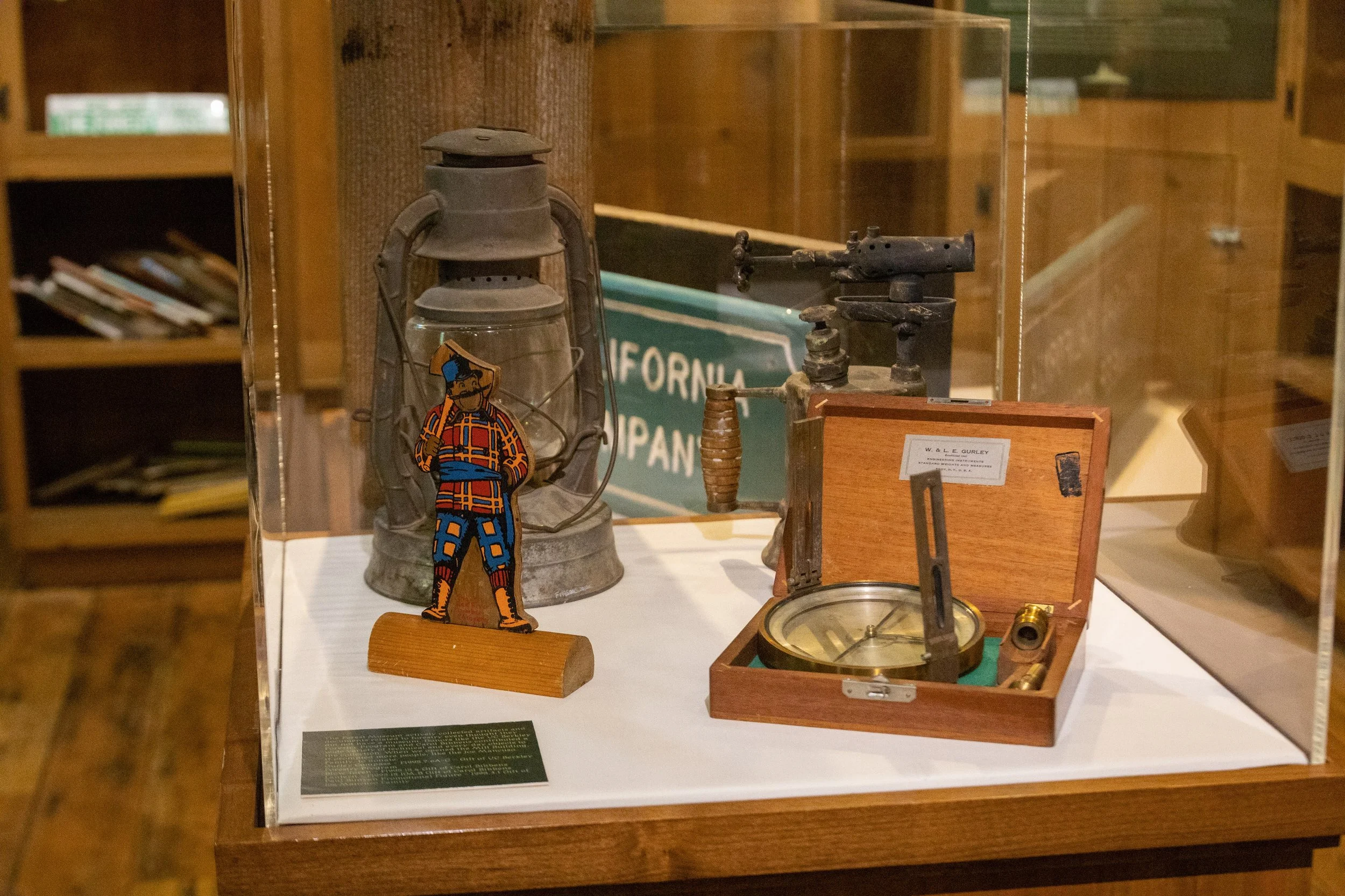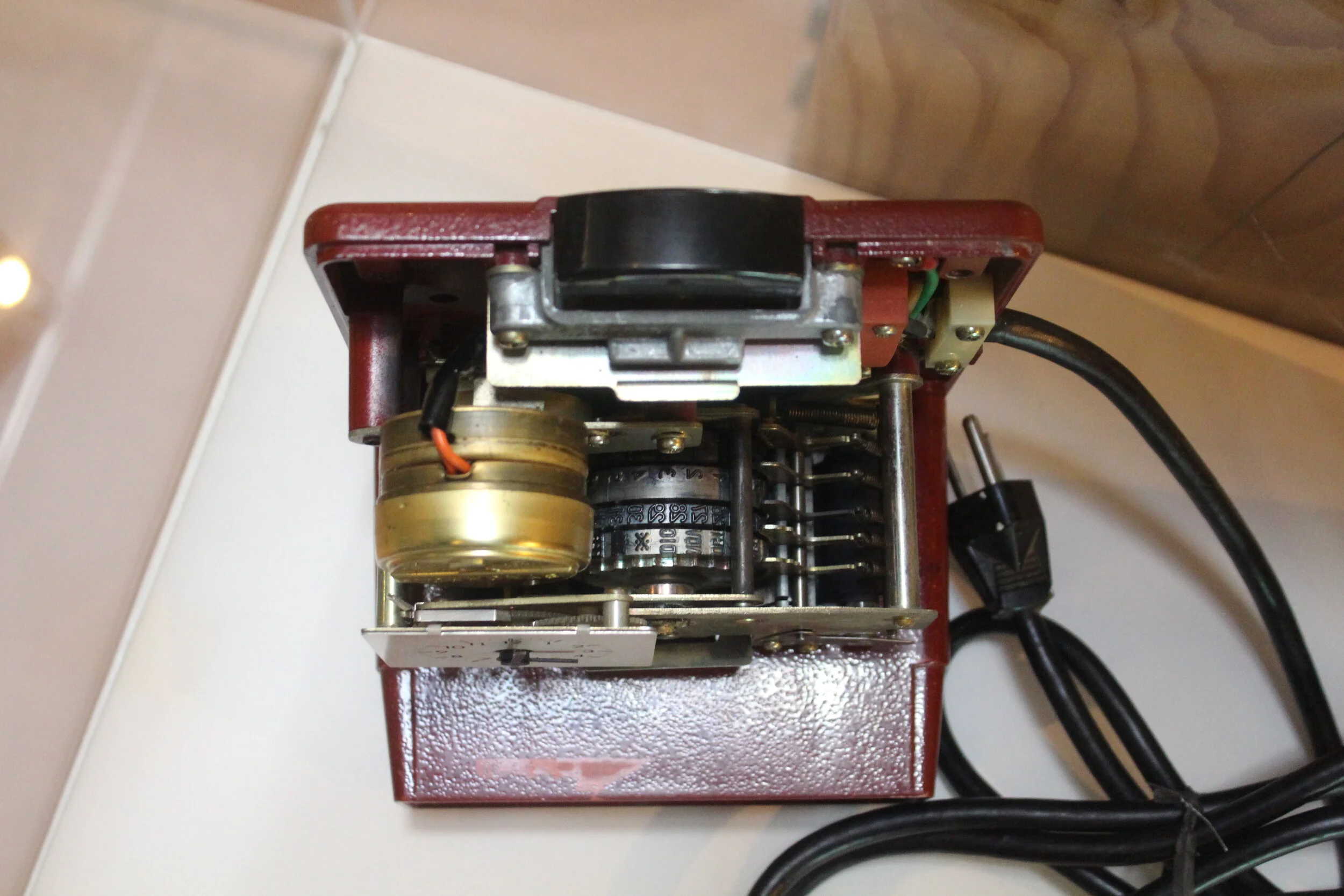The time has come for the 7th West Coast Biennial Juried Art Exhibit! This Turtle Bay tradition is loved by many, and it wouldn’t be possible without your remarkable art submissions. We are asking artists like you to submit pieces of media that you think would make great additions to the 2023 Exhibition.
Plant of the Month: Toyon
Artifact of the Month: Hand Grenades
Behind the Scenes with Timber
Plant of the Month: Buckwheats
Artifact of the Month: Wintu Hairpin Replicas
Artifact of the Month: Wintu Hairpin Replicas
In 1988, the Redding Museum Board of Directors commissioned Craig Bates to create several objects for educational purposes. He based his reproductions on actual indigenous belongings and photographs from museum collections and used authentic tools, materials, and designs as much as possible. How did Craig acquire such a skill?
Drought Tolerant Gardening is a Redding-Area Must. Here’s Why.
At Your Own Pace: Turtle Bay’s Sensory Hour
Recap: Brews by the Bridge 2022
Brews by the Bridge 2022 was one for the books! Rain or shine, we all brought our A-game! With all the admission ticket sales and beer tickets sold, we were able to raise a little over $57,000, surpassing our goal for this event! All the funds are going to Turtle Bay’s world-class exhibitions, animal care programs, and blossoming education programs.
Turtle Bay: 20 Years and Counting
Making memories has been the core of Turtle Bay Museum’s mission since it opened its doors in 2002 along the Sacramento River.
Twenty years later, the epicenter of science, art, history, and culture is celebrating a much-anticipated anniversary. While the museum went through initial growing pains, Turtle Bay continues to break attendance goals month after month.
Artifact of the Month: Turtle Maquettes
We are excited to share these beautiful, green, glistening maquettes in honor of the Museum’s 20th Anniversary! Much has changed at Turtle Bay Exploration Park since these very first Public Artworks were commissioned!
Created by Troy Corliss for the opening of the Visitor Center in 2000, these maquettes, or models, are small versions of larger sculptures that now reside at the West Entrance of the Botanical Gardens and are simply and officially designated “The Turtle Sculpture”. Troy was commissioned by what was then called “Turtle Bay Museums and Arboretum on the River” to design a turtle sculpture to greet guests.
Plant of the Month: Little Leaf Sage, Autumn Sage, and Offspring
Turtle Bay’s plants of the months are the long-blooming and water-wise, small to medium shrub Salvias – Salvia microphylla and Salvia greggii and their interspecific hybrid offspring Salvia x jamensis.
“They have an elegant contrast between foliage and flowers,” says Lisa Edicott, Turtle Bay’s Horticulture Manager.
Their flowers bloom in a rainbow of colors and bloom until frost if they are occasionally “deadheaded” (spent flowers and flower stems cut off) throughout the season.
25 Years of Forest Fun: New Exhibit in Mill Building
Twenty-five years ago, on April 12, 1997, Paul Bunyan’s Forest Camp opened to the public. Five thousand people poured in to enjoy the new museum and playground. This major milestone was both the first phase of the newly merged Turtle Bay and the culmination of 15 years of planning, fund-raising, and hard work on the part of the Forest Museum.
Artifact of the Month: Tabi Socks
Artifact of the Month: Amano Time Clock
Artifact of the Month: Haida Argillite Sculpture
Artifact of the Month: Ice Chipper
Artifact of the Month: Historic Remedies
Artifact of the Month: Victorian Pickle Castor
How providential that we are able to present this perfectly pleasing yet peculiar pickle paraphernalia! This is not your ordinary pickle jar! In fact, it probably didn’t hold the type of pickles we are most familiar with today – those delicious, tangy, former cucumbers. Before the ubiquity of refrigeration, jams, jellies, pickles, and chutneys preserved produce for future consumption. Victorian pickle recipes included sweet pickled cantaloupe, pickled onions, cauliflower, cabbage, radish pods, nasturtium seeds, walnuts, as well as the more familiar gherkins and cucumbers. Spiced or pickled fruits such as sour plums, blackberries, cherries, and pears were also popular. Yum!
Artifact of the Month: Powder Horn
You may think this is a horn to blow – a type of trumpet to gather the troops and charge into battle! Though these objects were sometimes used in battle, by local militiamen during the Revolutionary War for example, powder horns served a different purpose. In addition to bullets and the firearms themselves, powder horns carried another important part of the kit – gunpowder!

